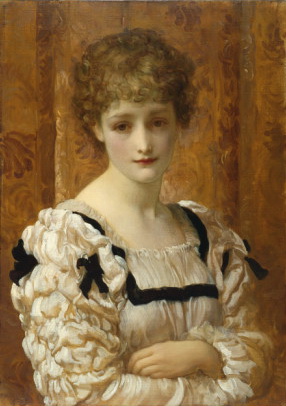Related Research Articles
Andrea is a given name which is common worldwide for both males and females, cognate to Andreas, Andrej and Andrew.

Bianca is a feminine given name. It means "white" and is an Italian cognate of Blanche. It is known in the Anglosphere as a character in William Shakespeare's The Taming of the Shrew. It came to greater notice beginning in the 1970s due to public figures such as Bianca Jagger.
Cristina is a female given name, and it is also a surname. Notable people with the name include:

Loredana Groza or mononymously Loredana is a Romanian singer. She is known for continuously reinventing herself and for approaching numerous music styles throughout her discography, ranging from pop to traditional music and manele. In 1987, Groza released her debut single "Bună seara, iubito", which—even though it was banned and censored in Romania for alleged inappropriate lyrics—became successful and one of her signature songs. Her album of the same name would go on to sell 1.5 million copies, making it the best-selling record of all time in Romania. Over the years, Groza released several acclaimed albums and hit songs, including "Apa" in 2012, which reached number two on the native Airplay 100 chart. The singer was a coach on the Romanian version of the televised competition The Voice for its first seven seasons.
Natalia is a female given name with the original Late Latin meaning of "Christmas Day".
Lora is a female given name and family name in the Spanish language of French origin meaning from Lorraine, a region in Northeastern France.
Justina is an anglicised versions of the Latin name Iustina, feminine of Iustinus, a derivative of Iustus, meaning fair or just. For the masculine version of the name, see Justin.
Silvia is a female given name of Latin origin, with a male equivalent Silvio and English-language cognate Sylvia. The name originates from the Latin word for forest, Silva, and its meaning is "spirit of the wood"; the mythological god of the forest was associated with the figure of Silvanus. Silvia is also a surname.
Chiara is a word and place name of Italian origin, meaning "bright" or "clear", and may refer to:
Monica is a female given name with many variant forms, including Mónica, Mônica, Monique (French), Monika, Moonika (Estonia), and Mónika (Hungarian).
Paloma is a Spanish female given name, derived from Latin "palumbus", which means "dove", a symbol of peace. The name also can be understood as the Holy Spirit symbolized in this bird. Palomma, using double "m", comes from a Neapolitan dialect, made famous in the song "Palomma 'e notte" written by Di Giacomo and Buongiovanni in 1906.

Flavia is a feminine given name of Latin origin. The name is most commonly used in Italy, Romania, Brazil and in Spanish-speaking countries. It is in occasional use in the United States, where 18 newborn girls were given the name in 2022.
Lidia is a feminine given name. It is the Greek, Italian, Polish, Romanian, and Spanish transcription of the name Lydia.
Iolanda is a given name used in Italian, Portuguese and Romanian languages. Notable people with this name include:

Ornella is an Italian feminine given name, probably derived from ornello, "flowering ash tree". It was coined by Gabriele D'Annunzio in his 1904 play The Daughter of Iorio and popularized by the fame of singer Ornella Vanoni and, later, of actress Ornella Muti. It is most widespread in central and northern Italy, as well as in Abruzzo, while it is rarer in the South of the country.
In European and Assyrian usage, the name Toma is a version of Thomas, originating from Aramaic t’om’a, meaning twin.
Stefania [in all languages except for Polish pronounced like Ste-pha-nee-ah] is a female name in Belarusian, Bulgarian, Croatian, Czech, Greek, Stefánia Hungarian, Italian, Romanian, Polish, Serbian, Macedonian, Slovak, Slovene, Ukrainian and Russian, originating from Old Greek meaning crowned or the winning.
Chiara is both a feminine Italian given name and a surname meaning bright. Notable people with the name include:
Petris may refer to:
Loredan is a Venetian surname. The House of Loredan is an aristocratic Venetian family that included various doges of the Republic of Venice, and the surname is almost exclusively associated with the family. The surname most likely originated from the toponym Loreo, which itself originated from its Latin name Lauretum, meaning laurel. Another theory of the origin of the surname, though most likely legendary, is that it comes from the Latin epithet Laureati, given to ancestors of the Loredan family due to their historical glory in ancient Rome and the many victories they achieved in battles. The surname is spelled Loredano or Loredan in Italian, Lauredano or Lauredanus in Latin, and Lorentano (Λορεντάνο) in Greek, though it is also historically found as Lordas (Λορδᾶς) and Lordano (Λορδάνο). The feminine name Loredana, common in Italy and Romania, was likely inspired by the surname.